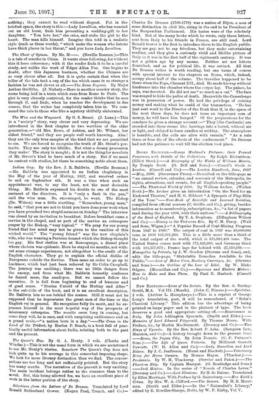Charles De Brosses (1709-1778) was a native of Dijon, a
man of some distinction in civil life, rising in the end to be President of the Burgundian Parliament. His tastes were of the scholarly kind. But of the many books which he wrote, only these letters, sent from Italy to his friends in France, are still read. Lord Ronald Gower is the first to introduce them to the English public. They are gay, not to say frivolous, but they make entertaining reading, and they give a curiously vivid and lifelike picture of Italy as it was in the first half of the eighteenth century. It was not a golden age by any means. Neither art nor letters flourished, and as for political life, it was extinct. All that De Drosses writes is worth reading, but one turns of course with special interest to the chapters on Rome, which, indeed, occupy about half of the volume. The traveller happened to be there when the Pope, Clement XII., died. He made his way without hindrance into the chamber where the corpse lay. The palace, he says, was deserted. He did not see" so much as a cat." The face was rouged to hide the pallor of death. Meanwhile the Camerlengo was in possession of power. He had the privilege of coining money and making what he could of the transaction. "He has just sent word to the Director of the Bank that if, in the space of the next three days, he does not issue an important sum of money, he will have him hanged." Of the preparations for the conclave he gives a strange account :—" They [the Cardinals] are crowded into these rooms like herrings into a barrel, without air or light, and obliged to burn candles at midday. The atmosphere is horrible, and the cells are alive with vermin." "As a rule three or four die of the effects of the confinement." De Brosses had not the patience to wait till the election took place.


















































 Previous page
Previous page